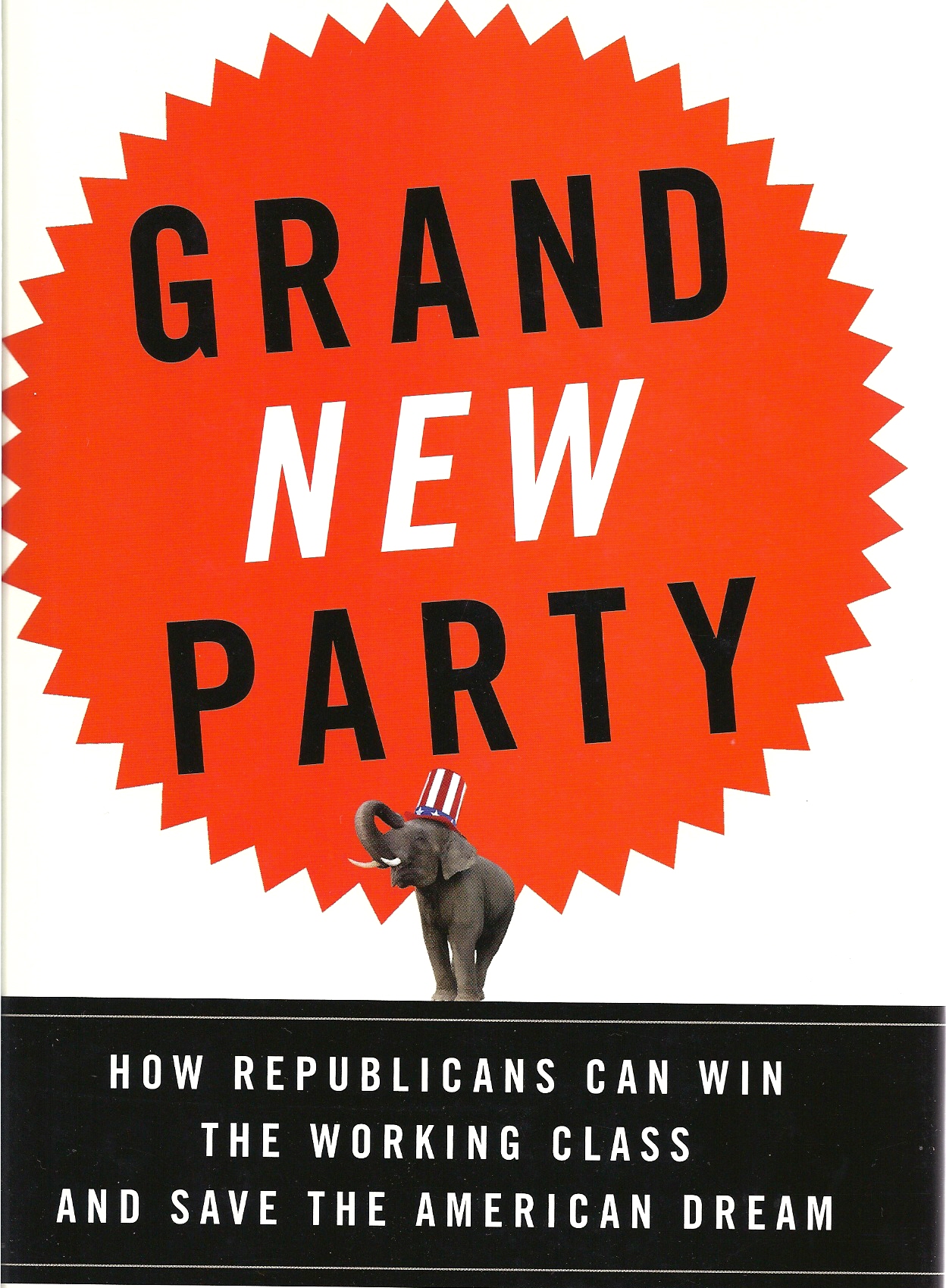 Ross Douthat and Reihan Salam, Grand New Party: How Republicans Can Win the Working Class and Save the American Dream, (New York: Doubleday, 2008), 233 pp.
by Matthew Raley
Ross Douthat and Reihan Salam, Grand New Party: How Republicans Can Win the Working Class and Save the American Dream, (New York: Doubleday, 2008), 233 pp.
by Matthew Raley
I have followed the incisive writing of these men in National Review for several years, and have regretted taking so long to get to their book. Their version of recent political history, their analysis of the working class and the new stratification of American society, and their road map to Republican success are compelling.
But my interest in their book is focused less on their political acumen than on their revealing picture of evangelicals.
Religious, socially conservative voters have been a base of the Republican party for several decades. These voters come from all classes, but they are disproportionately working class and southern. They have pushed the party to adopt pro-family, pro-life, and anti-gay marriage positions, and to side with them against the sexual mores of Hollywood.
When Douthat and Salam show these voters' problems as part of the larger working class in America, a disturbing portrait emerges.
The authors assert (p 133), "The most important thing to understand about today's stratification -- economic, social, and cultural -- is that it starts at home, where working-class Americans are far less likely than their better-educated peers to enjoy the benefits of stable families."
Come again?
Better-educated Americans are liberals. They're the ones who don't have stable families, who don't even believe stable families are important. So what's this about the working class not enjoying stable families?
Douthat and Salam explain (p 133), "The divorce rate exploded across all classes in the late 1960s, but among the college educated it leveled off quickly and then began to drop." Here are the numbers (pp 133-134):
In the period from 1970 to '74, 24 percent of all first marriages among Americans with college degrees ended in divorce within ten years; two decades later, that figure had fallen to just 17 percent. During the same period, by contrast, the divorced-within-ten-years rate crept up among Americans without a college degree, from 34 to 36 percent. As late as 1980, the divorce rate for women without a four-year college degree was just three percentage points higher than the divorce rate for women with a four-year degree; by 2000, this "divorce divide" stood at nine percentage points.
Or take illegitimacy (p 134):
In the early 1960s, the rate of out-of-wedlock births was 5 percent among the best-educated third of the population and just 7 percent among the least-educated third. Over the next forty years, the illegitimacy rate would triple for the least-educated third, while barely budging among the best-educated segment of the population.
For Douthat and Salam, the social conservatism of so-called Red states is directly related to the working class's economic interests.
They quote Garance Franke-Ruta of the American Prospect (p 140): "People in states like Massachusetts, for example, which has very high per capita incomes and the lowest divorce rate in the country, are relatively unconcerned about gay marriage, while those in Southern states with much higher poverty, divorce, and single-parenthood rates feel the family to be threatened because family life is, in fact, much less stable in their communities."
The authors' point that social conservatism is not, as many liberals argue, a distraction from the real problems of the working class, is needed.
But the disconnect between the voting passions of evangelicals and the way their families live has bothered me since the late nineties, when it became increasingly obvious that the loud, beefy Rush fans were just as, if not more, immoral than their NPR nemeses, and that Red-state church attendance was not having much impact on this hypocrisy.
I read Douthat and Salam's policy recommendations with enthusiasm. I hope a talented politician is studying this book.
But when I finished it, my thoughts went back to evangelicals. Their sexual morality is more an aspiration than a fact, which puts them in a poor position to lecture the rest of the country about righteousness. The out-of-wedlock pregnancy in the Palin family is all too typical of evangelical households right now, and protests that we believe a gospel of grace are not going to gain us sympathy.
Evangelicals need to recall that the kindness of God should lead us to repentance.
